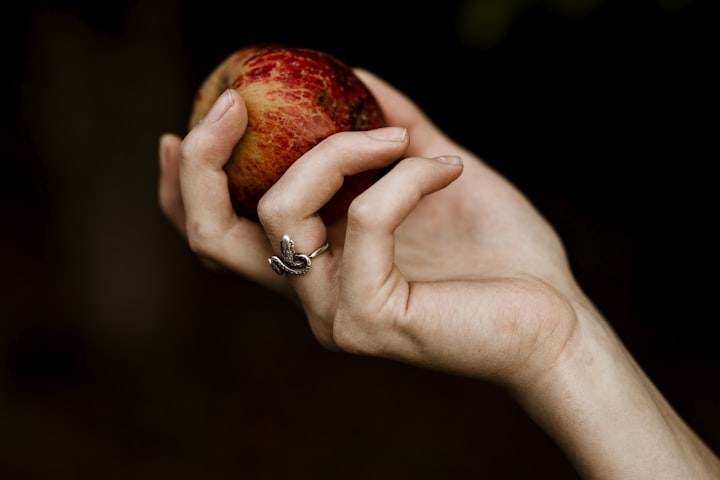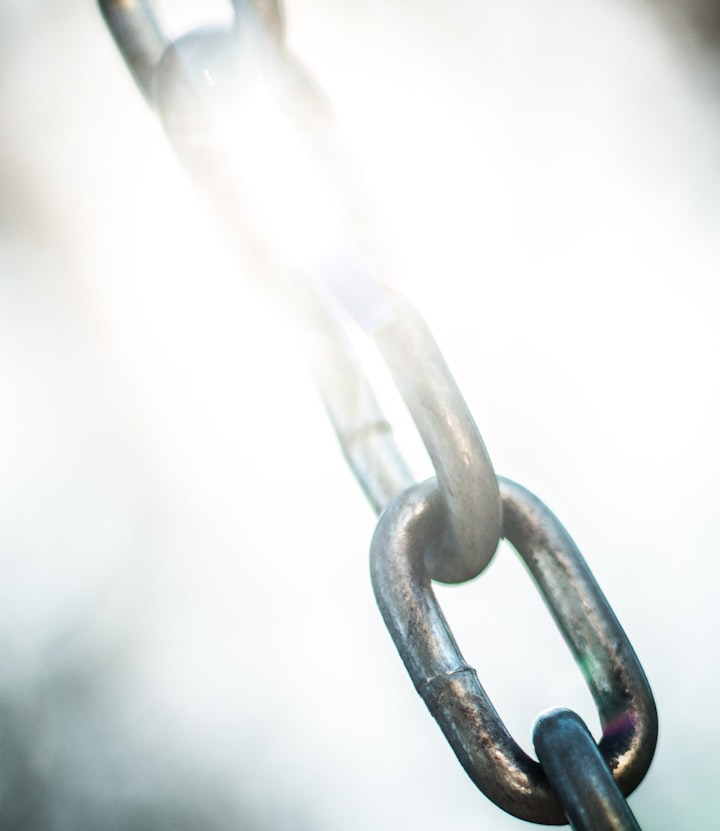Eve: A Pawn in a Manly Game
An Analysis of Milton's Paradise Lost

Eve is commonly left to take the blame for the original mortal sin that caused the fall of man from paradise and created the cruel world that is known today, according to the Christian creation story taught from the first book of Genesis within the Bible. However, Milton gives Eve a more sympathetic option and has Adam take at least partial blame while sticking to the main story provided by the Protestant denomination he attended. While Milton gives a more sympathetic part to Eve, his narrative still shows the mistreatment of women and her ultimate damnation as the scapegoat of Christian history.
Eve, within the Bible and Paradise Lost, is an afterthought for God on behalf of man. Referencing the New International Version of Genesis, "So God created mankind in his image,/ in the image of God he created them;/ male and female he created them" (Genesis, 1.27). In the first chapter of Genesis, Adam and Eve are created at the same time. However, in the next chapter, Adam is created first and Eve second with the verse, "Then the LORD God made a woman from the rib he had taken out of the man, and he brought her to the man" (Genesis.2.22). In this second chapter of Genesis, Adam is alone in the beginning. Eve was only created because God could not find a suitable companion among the animals he had already given to Adam and populated the garden.
Within Paradise Lost, Eve is created for Adam. As Milton is writing based on the creation story widely understood as accurate, he could not necessarily change the story too much without being considered a blasphemous individual. On that note, Eve is created for Adam in Paradise Lost and within the religious context of the Bible. In book eight of Paradise Lost, Adam admits that something is missing in his life and that he felt the need for a companion. Adam recounts, "The rib he formed and fashioned with his hand;/ Under his forming hands a creature grew,/ Manlike, but different sex, so lovely fair" (8.468-470). The rib is a bit of bone that protects the heart and lungs' vital organs.
Taking a rib makes Adam vulnerable to damage, foreshadowing that Eve will cause irreparable harm to themselves and ultimately the entirety of humanity. This also puts Eve as a product of Adam and having to owe her existence to a man, and the male-coded figure of God. Eve is not her own person, simply a wish that turned into a reality for a man. In the last line, Eve is set apart from Adam. They are not equal, but different. She is not man but is "manlike".
Alison Bare defends this point in her article "Feminism Regained: Exposing the Objectification of Eve in John Milton's Paradise Lost". She claims,
At this moment, the details of God's commission are clear. The specifications regarding the intended use of a new human design (Eve) have been explicitly stated by the intended recipient of that design. The specifications of Eve's purpose—dictated by one man (Adam) and ratified by another (God)—express clearly that her end is not in herself. Her end is in Adam. (Bare. 102).
Eve never really has free will throughout the epic poem nor in the source material of the book of Genesis. However, it is asserted through the theology of the church that she is entire of her own free will when the serpent seduces her into eating from the tree of knowledge. While she technically had free will, she was pushed into her position of needing to be an equal with God in the form of knowledge, as Lucifer alleges, so she is no longer at the bottom of the pecking order.
Not only is Eve explicitly made for Adam, he treats her in a domesticated subservient way. Adam orders "Haste hither Eve," and "This day to be our guest, But go with speed,/ And what thy stores contain, bring forth and pour" to Eve putting her in another subservient position of being able to order her around but putting her in the domestic wife role that persists in society as of today. Kat Lecky addresses this scene in her article "Milton's Experienced Eve",
Milton foregrounds Eve's efforts to care for the angelic, human, and vegetal bodies in her charge and highlights her integral role in this Edenic microsociety even as he stages her exclusion from the lessons given to Adam by God's messengers. (Lecky 460).
Adam and Eve are meant to be laborers on Eden together, but when Adam orders Eve to labor while he converses with an angel, he puts himself in to a God-like position over her.
Adam never considers Eve his equal as she is made for and from him. He knew his authority over her just because he came first in this narrative. Satan goes to the garden to see what new creatures God had created, looking to corrupt and damage his father's playthings. As he spies on the pair of humans, he recognizes Eve is lower in the hierarchy of power. Satan's thoughts on the situation are,
Whence true authority in men; though both
Not equal, as their sex not equal seemed;
For contemplation he and valor formed,
For softness she and sweet attractive grace,
He for God only, she for God in him (4. 295-299).
Adam is meant to serve God and Eve is meant to serve Adam as a companion and laborer. She is meant to be the mother of all men and serve by populating the Earth, something in which Adam cannot do on his own, or at least not how God allows it to happen. They are different in their sex and anatomy, but it was decided by the male-coded characters that Eve would be the woman and her purpose would be far greater in the actual work of bearing children, laboring, and serving the men. God is God and could have altered this, but her role is that of servant with the illusion of being an equal.
Milton has Adam take at least some of the blame for their impending doom after Eve eats the forbidden fruit and informs Adam. Adam replies to her
Daughter of God and man, immortal Eve,
For such thou art, from sin and blame entire:
Not different of thee do I dissuade
Thy absence from my sight, but to avoid
Th' attempt itself, intended by our foe. (9.291-295)
She is daughter of God and Man, an extension of Adam through his rib, playing foil for Satan's incestuous bride. She is Daughter of God and man first, and Eve last. Her identity and name is last on the list of her identifiers, putting the male figures first. In the epic poem, Eve is the only woman in paradise or Heaven. She is made from man, and subservient to Adam and definitely subservient to God. Furthermore, while Adam takes some of the blame, it is like a father scolding a child. He should have known better than to let her off on her own because he is the being with higher knowledge.
Adam tells Eve that she cannot take all the blame because he left her alone and that her isolation from Adam. This further points to the mistrust and lack of power that the male figures perceive of Eve. He posits that if he were there, her eating of the fruit may have been avoided. This is not to say that Adam does not think much of Eve. In fact, Adam says "Her own, that what she wills to do or say,/ Seems wisest, virtuousest, discreetest, best;" (8.549.550) showing that he believes she is a great person, ranting about how great she is to the Angel for almost the entirety of book eight. However, only a couple lines before the above quote, Adam admits to the Angel that "Oh nature her th' inferior" (8.541). She was created second of the two and he was given authority over her, putting her in a lesser position.
Her isolation is a construct of both her and her husband is doing. He neglects her and shows superiority over her. He orders her to collect food for the Angel, relays the rules second-hand to her, and isolates her from his conversations with the divine. She then begins to self-isolate. Her husband is hesitant to let her labor alone, for they have been warned of the danger that is Satan wishing harm upon them. He tries to convince her not to labor alone with a long speech using flattery such as "associate sole" (9.227) to begin and start off with the best impression that he is on her side about staying together but ends with the lines "The wife, where danger or dishonor lurks,/ Safest and seemliest by her husband stays,/ Who guards her, or with her the worst endures" (9.267-269). There are subtle differences on how he treats her that lets the reader know that he believes himself to be superior.
Adam wants to make sure she is happy while still maintaining control over her. He rates her almost like a child, having to use flattery to gain favor from Eve. Lecky writes "Adam's allusions to Eve's perceived inferiority echo other points in the text at which masculine speakers intimate that Eve does not share Adam's capacity for proper judgement" (Lecky, 463). Adam does not trust Eve's judgement, and neither does Satan, making her the easier target when she is away from her controlling husband.
Milton even acknowledges Eve's role in paradise and the grand scheme of things. He refers to Eve as "the weaker" (6.909) after the battle between Heaven and Hell. Elisabeth Lievert writes in her article "Rendering 'More Equal': Eve's Changing Discourse in 'Paradise Lost', "The otherness of Eve and her different orientation stem directly from her creation as Adam's 'other self', a paradoxical state of unlike likeness," (155) as per the quote mentioned in an earlier paragraph from book eight. Lievert continues, "similar enough to Adam to be identified by him as flesh of is flesh and yet at the same time possessed of difference that renders her separate not only in physical form but in character, inclination and wisdom" (155-156). Again, she is made of Adam, but she is not him. In a sense, she is a child compared to him, being made of him and younger than him. She gets treated as such a child.
Eve knows she is being put down from the actions of her husband. She is called an equal, but actions do in fact speak louder than words. Bare writes, "In regard to the case of Milton's Eve, we have seen how Adam's ownership of her constitutes a denial of her own autonomy at the time of her creation... Eve will never be self-sufficient away from Adam because her end is not, and never will be, in herself." (Bare. 106). This is not inherently misogyny but patriarchy. In Genesis and Jewish culture, lineage is typically traced through the Matriarchy rather than the patriarchy. Genesis states, "That is why a man leaves his father and mother and is united to his wife, and they become one flesh" (Genisis.2.24).
However, considering that this creation story may have been considered a historical fact to Milton, Milton writes this from the postlapsarian context of the patriarchal society he is now a part of. As Paradise Lost is a work of fiction that strays from the original Bible narrative, Milton can rectify it further and change the story of The Fall. Joseph Wittreich writes in his book Feminist Milton "If misogyny is Satan's curse, patriarchy is God's curse, and both are brutal facts of history. Nevertheless, also, given God's Milton's God's, promise to surrender his scepter, misogyny and patriarchy are escapable facts of history" (Wittreich, 96). Milton had the capability of changing Eve's narrative to a more sympathetic or redeeming one, considering that his Paradise Lost has altered the course of Christianity and has lasting effects seen in the mainstream church today, alongside another work of fiction, Dante's Inferno.
As Satan seduces her, Eve tries to justify what she knows is wrong, or at least justify it against her husband. Eve reflects,
In Female sex, the more to draw his love,
And render me more equal, and perhaps,
A thing not undesirable, sometime
Superior, for inferior who is free?
Eve lacks self-esteem caused by constant belittlement and questions of her judgment. While Adam never directly calls her inferior, she knows by his actions that she is not above him in the hierarchy of living things. Lecky analyzes the previous quote and asserts, "Eve's contemplation of her inferiority links with her desire to level the perceived hierarchies of her social field" (Lecky, 465).
All blame is not upon Adam and Satan. In this epic poem, God is the one to create Eve in his own image and in Adam's and is yet to be one to neglect her within the Garden of Eden. Liebert explains, "Higher knowledge is the prerogative of males: God is male, and the angels are referred to individually by the masculine third pronoun" (156). Eve, as mentioned previously, is the only female-coded character within Paradise Lost that resides or has access to the Garden of Eden. She is isolated and ruled over by male-coded figures while knowing there is a difference between her and them.
In book five of Paradise Lost, God needs to tell the inhabitants of Eden that Satan may come to them, "when God sends Raphael to warn Adam and Eve of their perilous situation, Raphael is instructed to 'converse with Adam,' while Eve remains a silent spectator to the ensuing conversation" (Liebert, 156). Eve is not considered able to understand or handle their perilous situation. Adam is the one who is trusted to make the right decisions, setting Eve up for failure with a lack of trust from a supposedly all-knowing and mighty God.
The concept of free will is complicated in theology and is still a theological question that people grapple with in today's churches. God is all-knowing, and his distrust in Eve sets her to become the scapegoat for The Fall. The men within the epic poem continually neglect and distrust her, so when she is offered a position of a higher power that she could redeem herself with, she falls for it. It is understandable, as Satan, disguised as a serpent, appeals to her insecurities. Adam takes a share of the blame for their banishment from Eden and their loss of paradise, but it is not enough to protect her from getting the brunt of the punishment when she was not adequately prepared to face such a proposition. The men of Eden and Heaven intentionally isolated Eve, causing her to take the path she did. She is a pawn in a heavenly game, creating the infamous creation story.
Works Cited
Bare, A. L. (2017). Feminism regained: Exposing the objectification of eve in John Milton’s paradise lost. English Studies, 99(2), 93–112. https://doi.org/10.1080/0013838x.2017.1405324
Lecky, Kat. "Milton's Experienced Eve." Philological Quarterly, vol. 96, no. 4, fall 2017, pp. 453+. Gale Literature Resource Center, link.gale.com/apps/doc/A534565587/LitRC?u=anon~c3596786&sid=googleScholar&xid=db1e7d2c. Accessed 6 Aug. 2022.
Liebert, Elisabeth. “Rendering ‘More Equal’: Eve’s Changing Discourse in ‘Paradise Lost.’” Milton Quarterly, vol. 37, no. 3, 2003, pp. 152–65. JSTOR, http://www.jstor.org/stable/24464971. Accessed 6 Aug. 2022.
Genesis Chapters 1 and 2. Genesis 1 NIV - - bible gateway. (n.d.). Retrieved August 3, 2022, from https://www.biblegateway.com/passage/?search=Genesis%2B1&version=NIV
Milton, J., Kerrigan, W., Rumrich, J. P., & Fallon, S. M. (2007). The complete poetry and essential prose of John Milton. Modern Library.
Wilding, M. (1994). 'THEIR SEX NOT EQUAL SEEMED': EQUALITY AND HIERARCHY IN JOHN MILTON'S PARADISE LOST. Retrieved 2022, from https://openjournals.library.sydney.edu.au/index.php/SSSC/article/download/7333/7752.
Wittreich, Joseph. Feminist Milton. Cornell University Press, 1987. JSTOR, http://www.jstor.org/stable/10.7591/j.ctvr697zg. Accessed 6 Aug. 2022.
About the Creator
Miss Ghoul
Credentialed English teacher






Comments
There are no comments for this story
Be the first to respond and start the conversation.